#Sugar treatment hospital Coimbatore
Explore tagged Tumblr posts
Text
Best diabetic hospital in coimbatore - Affinity Elder Care
Affinity Elder Care stands out as one of the best diabetic hospitals in Coimbatore, offering comprehensive and specialized care for diabetes management. With a dedicated team of experienced endocrinologists and diabetic care specialists, the hospital provides personalized treatment plans tailored to each patient's needs. Affinity Elder Care focuses not only on controlling blood sugar levels but also on preventing complications through regular monitoring and lifestyle guidance. The hospital is equipped with state-of-the-art technology and offers services such as diabetic foot care, nutrition counseling, and insulin therapy. Patients receive compassionate care in a comfortable environment, making Affinity Elder Care a trusted choice for diabetes treatment in Coimbatore.
0 notes
Text
Pamper Yourself with a Luxurious Body Scrub and Wrap Spa Experience in Coimbatore
In the bustling city of Coimbatore, finding moments of relaxation and self-care can be a refreshing escape from daily routines. If you’re seeking a rejuvenating experience that will leave you feeling refreshed and revitalized, a body scrub and wrap spa treatment might be just what you need. Spa services in coimbatore These treatments not only enhance your skin’s appearance but also provide a soothing and indulgent experience.
The Benefits of a Body Scrub
A body scrub is designed to exfoliate your skin, removing dead cells and promoting a smoother, more radiant complexion. Body Scrub and wrap spa in Coimbatore During the treatment, a therapist applies a scrub made from natural ingredients like sea salt, sugar, or coffee grounds, often combined with essential oils or other nourishing substances. This gentle abrasive action sloughs off dull skin cells, revealing the fresh, healthy skin underneath.
The benefits of a body scrub extend beyond just improving your skin’s appearance. Regular exfoliation can help improve circulation, which boosts the flow of oxygen and nutrients to your skin cells. This process can result in a more even skin tone and a reduction in the appearance of dry patches or rough textures. Additionally, exfoliating can help prevent clogged pores and ingrown hairs, making it an excellent treatment for maintaining overall skin health.
The Luxury of a Body Wrap
Following a body scrub with a body wrap takes the pampering experience to the next level. A body wrap typically involves applying a layer of nourishing ingredients to your skin, such as mud, clay, seaweed, or hydrating gels. After the application, you’ll be wrapped in a thermal blanket or sheet to help the ingredients penetrate deeper into your skin.
The body wrap treatment provides intense hydration and detoxification. The active ingredients in the wrap work to draw out impurities, toxins, and excess fluids from your body while simultaneously delivering essential nutrients and moisture. Massage Therapy in coimbatore This results in a more toned, hydrated, and revitalized appearance. Many people find that body wraps also promote relaxation and stress relief, making them a wonderful addition to any spa day.
Why Choose a Spa in Coimbatore?
Coimbatore is known for its warm hospitality and a growing number of high-quality spas that offer a range of treatments. Opting for a body scrub and wrap at a local spa ensures that you receive personalized care in a serene environment. Whether you’re looking for a relaxing retreat or a way to pamper yourself before a special occasion, the skilled therapists in Coimbatore’s spas are dedicated to providing exceptional service.
Spas in Coimbatore often use locally sourced and natural ingredients in their treatments, which adds an authentic touch to your experience. From luxurious settings to expert techniques, you can expect to be treated with the utmost care and attention. head to toe aroma in coimbatore Many spas also offer additional amenities such as saunas, steam rooms, and relaxation lounges, allowing you to extend your spa day and fully unwind.
Conclusion
Incorporating a body scrub and wrap into your self-care routine can provide numerous benefits for your skin and overall well-being. The combination of exfoliation and hydration, coupled with the relaxing atmosphere of a spa in Coimbatore, makes for an indulgent and rejuvenating experience. Whether you’re seeking to refresh your skin, relieve stress, or simply enjoy a day of pampering, a visit to a Coimbatore spa for a body scrub and wrap is a fantastic choice. Embrace the luxury, and let the skilled professionals take care of you — your body and mind will thank you for it!
0 notes
Text

Discover unparalleled expertise in diabetes care at Sri Ramakrishna Hospital, your trusted sugar specialist hospital in Coimbatore. Our committed team of specialists offers advanced treatments and personalized care to manage diabetes effectively. Choose us for comprehensive solutions and compassionate healthcare, guiding you towards a healthier and fulfilling life.
0 notes
Text
0 notes
Text

For More Info: https://diabetesknow.com/t2d/type-2-diabetes-diet-plan/
#Best Diabetologist#Best Diabetes Hospital in Coimbatore#Best Diabetes Treatment#Sugar treatment hospital Coimbatore
0 notes
Text
Best Sugar specialist | Thyroid Treatment Hospital in Coimbatore
Ramakrishna Hospital in Coimbatore has always given absolute treatment for their patients who are all suffering from thyroid, diabetes diseases.
https://sriramakrishnahospital.com/majordepartment/diabetology-and-endocrinology/
#thyroid specialist in coimbatore#Sugar treatment hospital Coimbatore#sugar specialist doctor in Coimbatore
0 notes
Link
Ramakrishna Hospital in Coimbatore has always given absolute treatment for their patients who are all suffering from thyroid, diabetes diseases.
https://sriramakrishnahospital.com/majordepartment/diabetology-and-endocrinology/
thyroid specialist in coimbatore, Sugar treatment hospital coimbatore, sugar specialist doctor in coimbatore
0 notes
Link
#thyroid specialist in coimbatore#Sugar treatment hospital coimbatore#sugar specialist doctor in coimbatore
0 notes
Text
Best diabetic hospital in Coimbatore - Affinity Elder Care
Affinity Elder Care is widely recognized as one of the best diabetic hospitals in Coimbatore, providing specialized care tailored to manage and treat diabetes effectively. The hospital combines advanced diagnostic technology with a team of experienced endocrinologists, diabetic educators, and dieticians to offer comprehensive diabetes management plans. Affinity Elder Care focuses on personalized treatment, helping patients maintain stable blood sugar levels, prevent complications, and lead healthier lives. From dietary counseling and lifestyle guidance to insulin therapy and continuous monitoring, Affinity Elder Care is dedicated to delivering quality care that empowers patients to take control of their diabetes with confidence and support.
0 notes
Link
The symptoms of diabetes type 2 may include excessive hunger or thirst, frequent urination, extreme fatigue, but also nerve tingling and blurred vision.
0 notes
Photo

Sugar specialist doctor in Coimbatore
Ramakrishna Hospital in Coimbatore has always given absolute treatment to their patients who are all suffering from thyroid, and diabetes diseases.
https://www.sriramakrishnahospital.com/majordepartment/diabetology-and-endocrinology/
Sugar treatment hospital Coimbatore
0 notes
Text

#Best Diabetes Hospital In Coimbatore#Sugar specialist in Coimbatore#Sugar specialist doctor#Diabetology treatment#Type 2 Diabetes
0 notes
Text
TESTING THE HEART
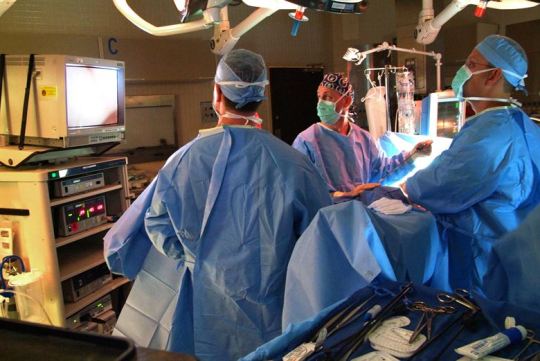
Heart care has become an industry. A number of heart institutes are being opened every day worth crores of rupees, in one or the other part of the country. The main aim of these institutions is to make money by performing as many bypass surgeries or angioplasties, because these operations only can earn astronomical amount of money. Estimations of Rs. 3 Lacs to Rs. 5 Lacs for one such operation are not uncommon. Some of the hospitals still perform these operations for as low as 65000, if they are in a small city like Coimbatore or Varanasi!
In these hospitals, necessary and unnecessary investigations or tests are also performed as a secondary source of revenue. Every cardiologist sends for a battery of investigations. Blood samples are drawn several times from the patients in a day in these hospitals. Many of these investigations are also done for the outdoor (OPD) patients also. The other day one of my patients told me that for tests only he has spent about Rs, 50000 in a heart hospital and then told him to bring another 3 lacs for the angioplasty. Mostly these patients are not explained what these tests are, why were they necessary and what are the interpretations.
In this issue we thought we should inform our readers about some of the investigations that are possible for a heart patient and their meanings. Some of the tests are almost compulsory to perform in a suspected heart patient or a confirmed heart patient. Some of them are to be performed on special occasions. In this issue we shall find out about some of the tests, in whom they should be done and what the results would mean.
Another disturbing thing that I found in heart hospitals is that they perform another battery of tests, which may be only necessary in case patient wants to opt for an operation and they prescribe these tests without telling the patients that they are performing these tests to prepare for the heart operation. These tests are HIV tests, Hepatitis test, X ray chest, Total blood count and differential count, kidney function tests, liver function tests, Blood grouping and serum Electrolytes. Most of these tests have no bearing with the treatment of heart disease, do not perform the most needed lipid profile test, which will inform the patient about the cause of the disease.
Angiography is the most invasive of all the tests described in the this issue but the results are unreliable and approximate. I do not recommend this test mostly. It should be done only when the patient is very keen to undergo bypass surgery or angioplasty.
THE BLOOD TESTS
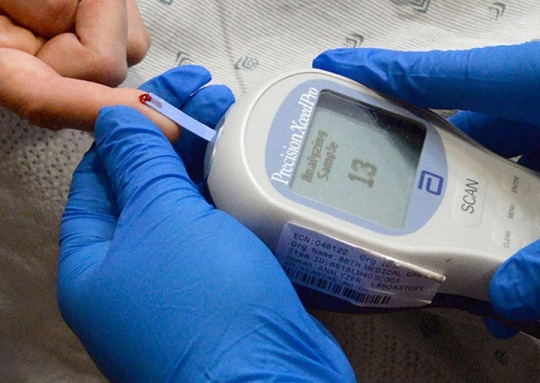
Lipid Profile
The lipid profile is a group of tests that are often ordered together to determine risk of coronary heart disease. The tests that make up a lipid profile are tests that have been shown to be good indicators of whether someone is likely to have a heart attack or stroke caused by blockage of blood vessels (hardening of the arteries).
The lipid profile includes total cholesterol, HDL-cholesterol (often called good cholesterol), LDL cholesterol (often called bad cholesterol) and triglycerides. Sometimes the report will include additional calculated values such as HDL/ Cholesterol ratio or a risk score based on lipid profile results, age, sex, and other risk factors.
The lipid profile is used to guide providers in deciding how a person at risk should be treated. The results of the lipid profile are considered along with other known risk factors of heart disease to develop a plan of treatment and follow-up.
Blood Glucose
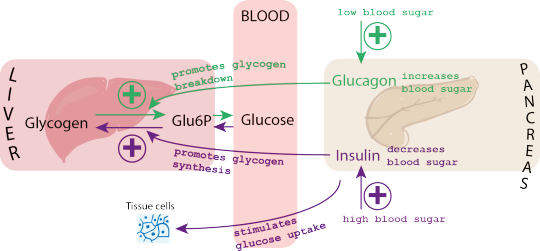
Blood glucose is the correct and scientific term. But in colloquial language people, even the doctors , use the term “blood sugar” for blood glucose. A conventional sugar test would mean testing for fasting and post prandial (PP) i.e. after meal. A good control would mean a fasting sugar of less than 100 mg/dl and a PP sugar of 140 mg/dl.
Serum Glycosylated Haemoglobin
Blood glucose estimation on a particular date can only tell about the control of diabetes on that date. But there is a blood test, which can instantly give us an idea about control of blood glucose over the past three months. This test can help in avoiding frequent blood testing and needle pricking. This test is called glycosylated haemoglobin (HbA1C). In a normal person with normal blood sugar the reading is about 6%. A diabetic with the worst of control will have a reading of about 12%. Saaol expects a figure of 7% or below. The principal behind the test is that it measures the glucose tagged haemoglobin percentage in blood. Haemoglobin (Hb) is produced in our body continuously. But on the day the blood glucose is high the haemoglobin would get tagged with glucose. Thus, the increase in the high glucose period will be associated with higher glycosylated haemoglobin.
Cardiac Enzymes
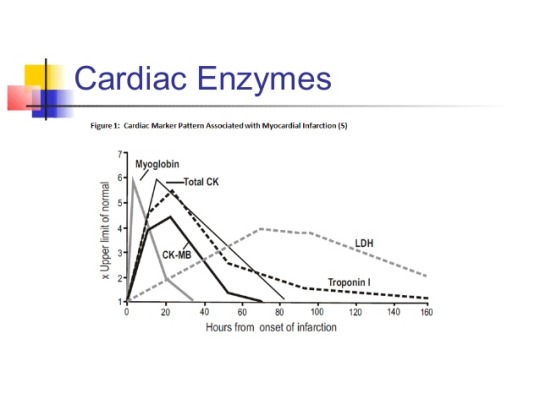
Cardiac Enzymes are protein molecules released into the blood stream from heart muscle damaged by a blocked artery. This is known as a heart attack. When someone is admitted to the hospital with a clear cut heart attack, these enzymes are measured to get an idea of how much muscle was damaged.
Many people are admitted to the hospital with apparent heart symptoms but other tests such as the ECG are inconclusive about whether a heart attack (i.e. damage to the heart muscle) actually occurred. In these cases, the cardiac enzymes are used to determine if this was a heart attack as opposed to a bad episode of angina or perhaps symptoms unrelated to the heart altogether.
The enzymes most commonly measured these days are creatine phosphokinase (CPK) (also known as creatine kinase (CK)) and Troponin.
These enzymes have a characteristic rise and fall pattern after a heart attack. It may take 4 hours or more after the onset of symptoms for the test to become abnormal and upto 24 hours for the level to peak. Consequently, blood test are taken from the patient several times. A normal blood test upon arrival in the emergency room does not mean a heart attack has not occurred. Eventually, the levels in the blood fall back to normal.
Troponin T&I
These are contractile proteins of the myofibril (heart muscle). The cardiac isoforms are very specific for cardiac injury and are not present in serum from healthy people. Troponin I is the form frequently assessed. There is new form (Troponin L) which may be detected earlier.
Rises 4-6 hours after injury
Peaks in 12-16 hours stays elevated for up to 10 days.
Electrocardiogram (ECG)

The ECG is the most commonly performed cardiac test. This is because the ECG is a useful screening tool for a variety of cardiac abnormalities; ECG machines are readily available in medical facilities; and the test is simple to perform, risk free and inexpensive.
How is the ECG performed?
The patient lies on an examination table, and 10 electrodes (or leads) are attached to the patients arms, legs and chest.
The electrodes detect the electrical impulses generated by the heart, and transmit them to the ECG machine. The ECG machine produces a graph (the ECG tracing) of those cardiac electrical impulses. The electrodes are then removed. The test takes less than 5 minutes to perform.
What information can be gained from the ECG?
From the ECG tracing, the following information can be determined:
· The heart rate
· The heart rhythm
· Whether there are “conduction abnormalities” (abnormalities in how the electrical impulse spreads across the heart).
· Whether there has been a prior heart attack
· Whether there may be coronary artery disease
· Whether the heart muscle has become abnormally thickened.
All of these features are potentially important. If the ECG indicates a heart attack or possible coronary artery disease, further testing is often done to completely define the nature of the problem and decide on the optimal therapy.
The Echocardiogram
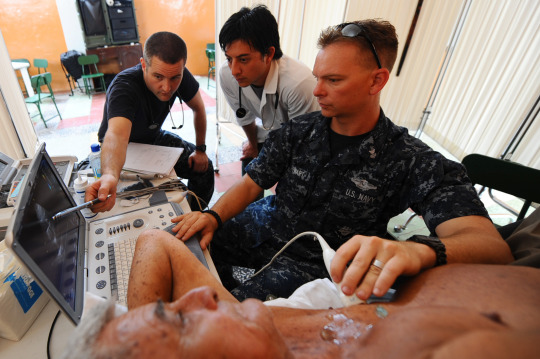
The echocardiogram is an extremely useful test for studying the heart’s anatomy. It is non-invasive and entirely safe, and when interpreted by well-trained cardiologists, is very accurate.
How is the echocardiogram performed?
The patient lies on a bed or examination table, and the echo technician places a transducer (a device that resembles a computer mouse) over the chest wall. The transducer is moved back and forth across the chest wall, collecting several “views” of the heart.
The Stress Test
Some forms of cardiac disease are easily missed when the patient is at rest, because at rest the patient’s physical examination and ECG are often entirely normal. In these cases, cardiac abnormalities may become apparent only when the heart is asked to perform at increased workloads.
The stress test is used to evaluate the heart and vascular system during exercise. It helps to answer two general questions: 1) Is there occult underlying heart disease that only becomes apparent when the heart is stressed by exercise? 2) If there is underlying heart disease, how severe is it?
How is a stress test performed?
The patient is attached to an ECG machine, and a blood pressure cuff is placed on one arm. Sometimes a clothespin-like sensor is attached to the finger to measure the amount of oxygen in the blood. After a baseline ECG is obtained, the patient begins to perform a low level of exercise , either by walking on a treadmill, or pedaling a stationary bicycle. The exercise is “graded���- that is every three minutes, the level of exercise is increased. At each stage of exercise the pulse, blood pressure and ECG are recorded, along with any symptoms the patient may be experiencing.
With a “maximal” stress test, the level of exercise is gradually increased until the patient cannot keep up any longer because of fatigue, or until symptoms (chest pain, shortness of breath, or lightheadedness) prevent further exercise, or until changes on the ECG indicate a cardiac problem. Maximal stress tests should be performed when the goal is to diagnose the presence or absence of coronary artery disease.
After the test, the patient remains monitored until any symptoms disappear, and until the pulse, blood pressure and ECG return to baseline.
Hope you liked this article!
This article is written by Dr. Bimal Chajjer (Heart Care Specialist)
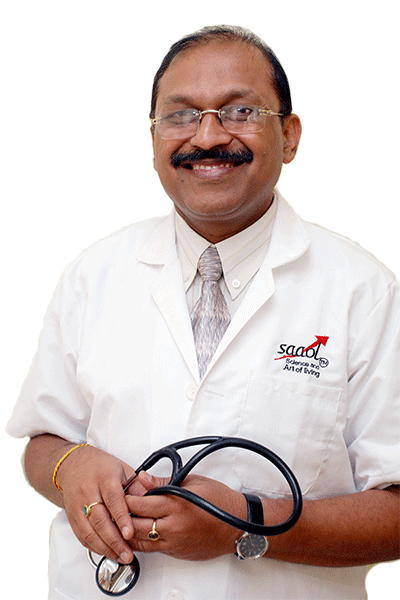
0 notes
Link
The symptoms of diabetes type 2 may include excessive hunger or thirst, frequent urination, extreme fatigue, but also nerve tingling and blurred vision.
0 notes
Link
The symptoms of diabetes type 2 may include excessive hunger or thirst, frequent urination, extreme fatigue, but also nerve tingling and blurred vision.
#Type 2 Diabetes#Diabetology treatment#Sugar specialist doctor#Sugar specialist in Coimbatore#Best Diabetes Hospital In Coimbatore
0 notes